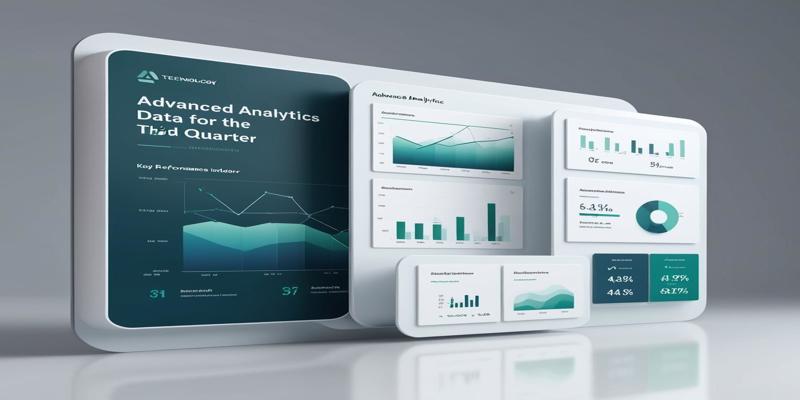First Tech Federal Credit Union Review
Dec 24, 2023 By Triston Martin
The members and workers of the technology enterprises connected with First Technology Federal Credit Union have access to the complete range of federal credit union services. First Tech has 33 branch sites, the majority of which are in California, Nevada, and Oregon, but also in Colorado, Texas, Idaho, Boston, and Houston. To its members, the credit union provides a full range of banking & lending facilities, including a variety of deposit and withdrawal accounts, debit cards, loans, and even investment vehicles. In order to join First Tech Federal, there are a few different options, some of which may include a price. Personal checking and savings accounts at First Technology Federal Credit Union are the subject of this evaluation. A comparison to First Tech is shown below.
Account Basics
Checking

There are now five different checking account options available from First Tech, such as a juvenile account. The First Tech Benefits Checking account has a $10 minimum initial balance requirement, but it offers interest and some other incentives if the account holder meets specific criteria. If you complete the following requirements each month, you'll earn 1.51% APY on sums up to $15,000 (0.11% APY on any amount of your balance exceeding $15,000):
- Create at least 20 separate purchases.
- Make a purchase of at least $500 in full with your First Technology debit or credit card.
- To the tune of $1,000, your bank account will be credited by ACH or direct deposit.
- Sign up for electronic statements.
Those accounts that don't maintain a minimum balance each month will earn a pitiful 0.01% APY. To fully benefit from the account's perks, you'll need a First Technology credit card or certain First Tech loans. Additional benefits entail cash rebates on credit card sales, cash rebates on First Technology loans and HELOCs paid from a connected First Technology account, as well as a $ten monthly refund on streaming subscriptions. If you're looking for a checking account that pays interest, First Checking Plus offers a flat APY of 0.05% on all balances. A minimum deposit of $10 is required to open an account. There are no maintenance costs associated with this account, and you may use your debit card at nearly 30,000 Co-op ATMs nationally without paying a charge.
An initial deposit of $10 is needed to start a First Technology Carefree Checking account. This basic checking account does not pay interest but has zero maintenance fees & free debit cards. Clients who want to put money aside for Medicare or other qualified medical costs may open a First Technology HSA Checking account. The minimum beginning deposit for the account is ten dollars, and it offers an annual percentage yield (APY) of one percent on all balances.
A shared custody checking account for children and their families is called Start-Up Checking. The account has a low minimum beginning deposit of just $10 and a low annual percentage yield of only 0.10 percent. Both the kid and guardian must be credit union subscribers before an account may be opened for the child. First Tech will immediately upgrade the account to a regular checking account once the kid reaches the age of 18. Debit cards may be issued at the parent's request so their kid can use the account without carrying cash.
Savings
Credit union members can also choose from a number of savings accounts at First Technology. A First Technology Rewards Savings account may be opened with as little as $25 and has similar perks as a First Technology Rewards Checking account. In fact, your savings account receives interest based on the following levels, with the corresponding annual percentage yield (APY; 0.10% to 2.01%) applying exclusively to the part of your account that falls within that level.
- APR of 2.00% on accounts between $0 and $999.99.
- 1.50% APY on $1,000–$24,999.99.
- An annual percentage rate of 0.10% on all balances above $25,000.
Both the Rewards Checking and Rewards Savings accounts have the same monthly criteria to get interested. In any case, the APY on this account is 0.05% for all amounts. The First Technology Instant Access Savings account has a substantially higher opening deposit requirement of $5,000 than the credit union's other savings options. Members' interest is accrued on a progressive scale according to their account balances:
- A minimum balance of $2,499.99 earns 0.35% APY.
- You'll earn 0.50% APY on accounts between $2,500 and $99,000.
- $100,000–249,999.99: 0.60% APY.
- The annual percentage rate is 0.70% for accounts above $250,000.
There is a $25 minimum to start a First Technology Carefree Savings account, so all balances receive 0.10% APY. There is a $5 minimum to start a First Technology Membership Savings account. However, the account's annual percentage yield is merely 0.05%. Another kind of joint parental account for minors under the age of Seventeen is the First Technology Start-Up Savings account. Interest is accrued on the account. When the kid reaches 18, First Tech immediately switches to Carefree Savings.
Share Certificates
Credit union members may open share certificates, which function similarly to CDs at banks. First Tech has two different kinds of share certificates: Traditional and Bump Up. Conventional share certificates issued by First Tech have periods between six months and five years and provide annual percentage yield. Interest rates vary between opening a regular certificate with a threshold and a super-sized certificate with a limit. The rates on First Tech's jumbo CDs are somewhat better than the market average.
Certificates representing Bump Up shares are traditionally issued for 13, 24, and 35 months, with annual percentage yields (APYs) of 1, 2, or 3. Certificate holders who have purchased a "Bump Up" may increase their interest rate at any time throughout the term. If you cash in any form of First Technology share certificate before it matures, you'll have to pay the penalty on top of any interest you could have received. Depending on how long the term is, share certificates come with a punishment of up to 260 days of interest, regardless of whether it has been earned. Profits, like interest, are added to the account every month or when the certificate matures.
Access on the Go

Users of First Technology Credit Union may make use of electronic and cellular banking services. The highly regarded mobile software is offered for both iPhone and Android, and it boasts functions like online payments pay, card administration, and mobile check deposits. Zelle is a money transfer service available to its members. The credit union may only have 33 physical locations, but there are over 31,000 surcharge-free Co-op ATMs available to its members. Support is also available in person at any of the more than 5,500 Co-op Shared Branch offices throughout the United States.

Find Q3 Investments in Technology and Advanced Analytics

The Smart Shopper's Guide to Using Basis Points for Better Financial Decisions

What Is Alternative and Non-Traditional Data? A Detailed Guide

Reasons Why Banks Don't Need Your Money to Make Loans

Putting Down Payments on Wheels: Can You Use a Credit Card?

Credit Cards Annual Fee

Methods to Gain Miles Apart From Using an Airline Credit Card

Credit Cards That Offer 2% Or More In Cash Back On All Purchases

Methods for Deciding on the Best Retirement Savings Plan

